Destiny and the rise of battle-tested video games
- Published
Destiny is one of the most eagerly-anticipated video games in history and has cost £310m to develop.
The hugely anticipated sci-fi video game Destiny is finally with us.
It's taken 500 people five years to produce and is intended to be the first part in an ongoing space opera that will span multiple games over the next decade.
The studio behind it, Bungie, was given a budget bigger than many Hollywood blockbusters after the success of its earlier Halo games.
Yet it still felt the need to first host an "alpha" and then a "beta" public test fairly late in the day, allowing large numbers of players the chance to shoot-and-loot across fairly extensive areas of the unfinished title for free.
If publisher Activision was confident enough to boast that Destiny would be the "best-selling new video game IP [intellectual property] in history" in February, why were these two trials subsequently needed?
Was it really to make a better game, or could it be a tactic to hook gamers into pre-ordering new titles?
Social shooting
Games developers have long carried out tests to collect valuable data and feedback that they can then use to shape their finished products.
In fact, the idea of public alphas and betas has been around on the PC for a long time, with shooters such as Unreal Tournament and Counter-Strike popularising the concept in the late 1990s.
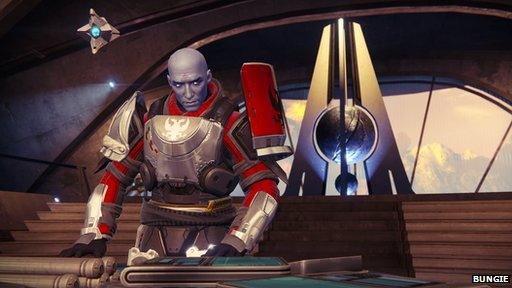
Activision has said it budgeted $500m (£309) to develop and promote Destiny
On consoles, such tests have tended to be "closed", involving only staff or vetted individuals, although there have been some exceptions, such as Halo 3.
Either way, these tests have tended to occur several months - and sometimes more than a year - before a game's release.
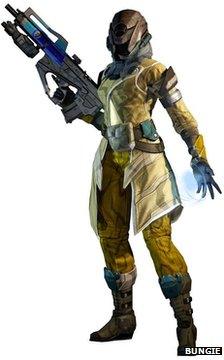
Destiny features a range of alien races as well as humans
By contrast Destiny's 10-day-long beta ended just over six weeks ago.
"In the case of Destiny, it will have been heavily tested behind closed doors well before the beta launched," explains Chris Dring, editor of UK games industry trade magazine MCV.
"This beta was more designed to test the game with a larger audience."
Involving so many people becomes critical when you consider that Destiny and many other of the latest titles put multiplayer gaming at their core. Fighting alongside or against other players is no longer an add-on, but at the heart of the game.
Large betas allow a developer to test the strain on its servers, which need to seamlessly and simultaneously communicate with millions of people around the globe.
"The Destiny beta was played by over 4.5 million people," says David Dague, Bungie's community manager.
"At one point, it became the most simultaneously played game in our company's history."
Gamer Guinea pigs
Experts have predicted that Destiny could attract 10 million "day one" players, and Activision is keen to avoid it becoming the latest internet-reliant title to suffer major technical issues at launch.

City building simulation SimCity was unplayable when it first launched because of computer server problems
Memories still loom large of the struggles of Grand Theft Auto V Online - which didn't have a beta test and had to reset player progress during launch week - and SimCity - which only had a closed beta and saw purchasers offered a free game to compensate them for enduring its sluggish play and glitches.
While Destiny has held one of the biggest open betas to date, it is not the only one to turn to the tactic in recent months.
"What we're looking for is all of the little stuff that we may have overlooked or have been unable to achieve with a limited amount of people playing," explains Phil Robb, creative director of the studio behind forthcoming title Evolve.
Turtle Rock Studios' four-on-one monster hunting game recently delayed its release until February 2015 after hosting a "closed" alpha test on PCs.
It has since scheduled an "open" Xbox One beta for January.
Like Destiny's beta, that sounds rather late in the day for make-or-break tests, but one expert said there was sense to such scheduling.
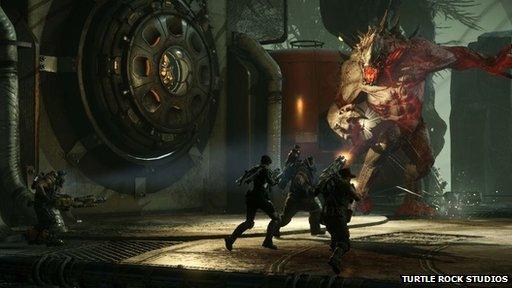
Evolve is a game in which four players attack a monster controlled by another person
"[I] disagree that they are 'so late that the developer really doesn't have time' to use what they learn," states Michael Pachter, digital medial analyst at Wedbush Securities.
"They can fix things on the fly, and can change things via update, so I don't see the knowledge as wasted."
Indeed, it's increasingly common for developers to provide release-day updates that gamers are urged to install before playing for the first time. PlayStation 4 owners already have a 296MB patch for Destiny to download.
"The more chances you have to get the product into gamers' hands, the more likely you are to find that stuff before release," notes Mr Robb.
Try then buy
Even so, some industry watchers suggest betas also serve as a valuable marketing tool to drive purchases before discounts and second-hand sales have a chance to erode earnings.
"Releasing a beta is a big vote of confidence in a title," explains Lewis Ward, director of gaming at market analysis company IDC.
"It's like the developer or publisher saying, 'Here you go. You know you won't be able to resist this once it comes out.'
"Assuming the beta is of good enough quality, and the Destiny beta was for me, then it will help seed additional sales through viral word of mouth."
Of course, public reaction can go both ways.
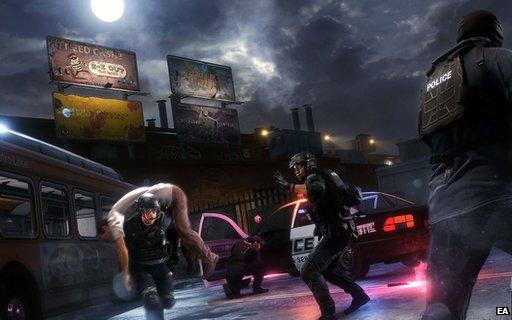
Battlefield Hardline was delayed to 2015 after a beta highlighted issues with the game
"You run the risk of some people not understanding what a beta is, and that could potentially have a negative impact," acknowledges Steve Papoutsis, executive producer on the forthcoming cops-and-robbers themed Battlefield Hardline.
It held a public beta in June, and was subsequently pushed back from an October release until "early 2015", with a second beta ordered.
"One of the reasons EA gave us more time on Battlefield Hardline was so we could actually act on the feedback that was provided," he adds.

Activision's $500m game?
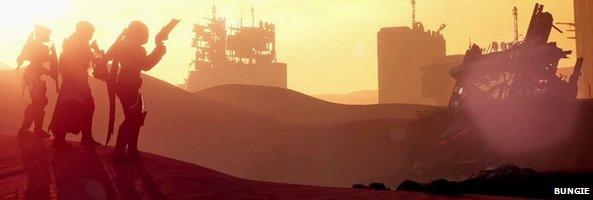
Bobby Kotick, chief executive of Activision, raised eyebrows in May when he told a conference that his company was taking a "$500m bet" on Destiny.
The company later clarified that the sum included marketing and other costs - but it meant the title was instantly hailed as the most expensive video game to date.
Commentators noted that Grand Theft Auto V had cost about about half the sum to make and promote.
But analyst Michael Pachter suggests Mr Kotick's figure is overstated.
"I think Activision put a number out there that is pretty meaningless," he told the BBC.
"The game cost around $180m to make, and its initial marketing budget will likely be $100m, so they will spend $280m before they sell the first copy.
"After that, 'costs' probably include the manufacturer's royalty and the setting up of a server farm and call centre infrastructure, as well as continuing development costs on downloadable content (DLC), etc.
"I think the number is way overblown, and too widely reported, and it was put out there so that people like you would ask people like me about it."

More betas?
Mr Ward is convinced the beta trend will become more prevalent.
Indies and crowdfunded game will benefit, he says, from offering their backers early access.
Meanwhile the bigger budgeted titles can negotiate first access to their trials in return for extra publicity from either Sony or Microsoft, for whom it can offer a more cost-effective way to differentiate their platforms than funding exclusive titles of their own.
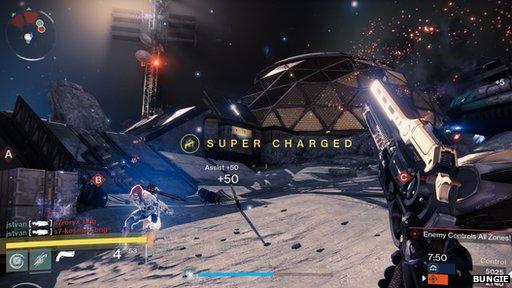
Destiny mixes together several genres including first-person shooter and role-playing game
There's also the suggestion that people enjoy playing unfinished titles over the course of several days more than playing a short demo of a completed section, as used to be the case.
"Gamers seem to like being involved in the development process," suggests Mr Dring.
"Destiny was always going to be a big hit.
"But it was that beta that made it the fastest selling new brand in video games industry history."
- Published8 September 2014
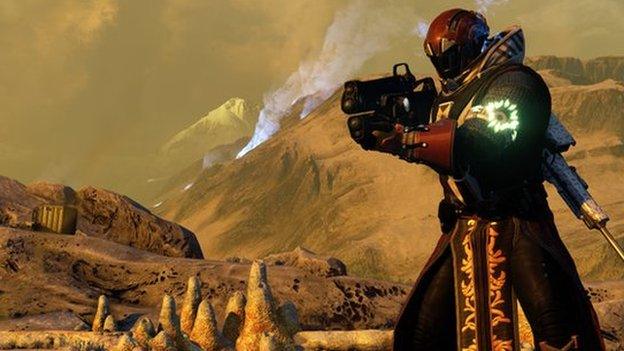
- Published16 April 2014
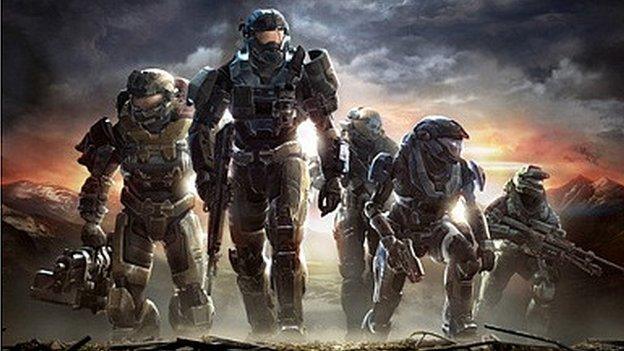
- Published6 May 2014
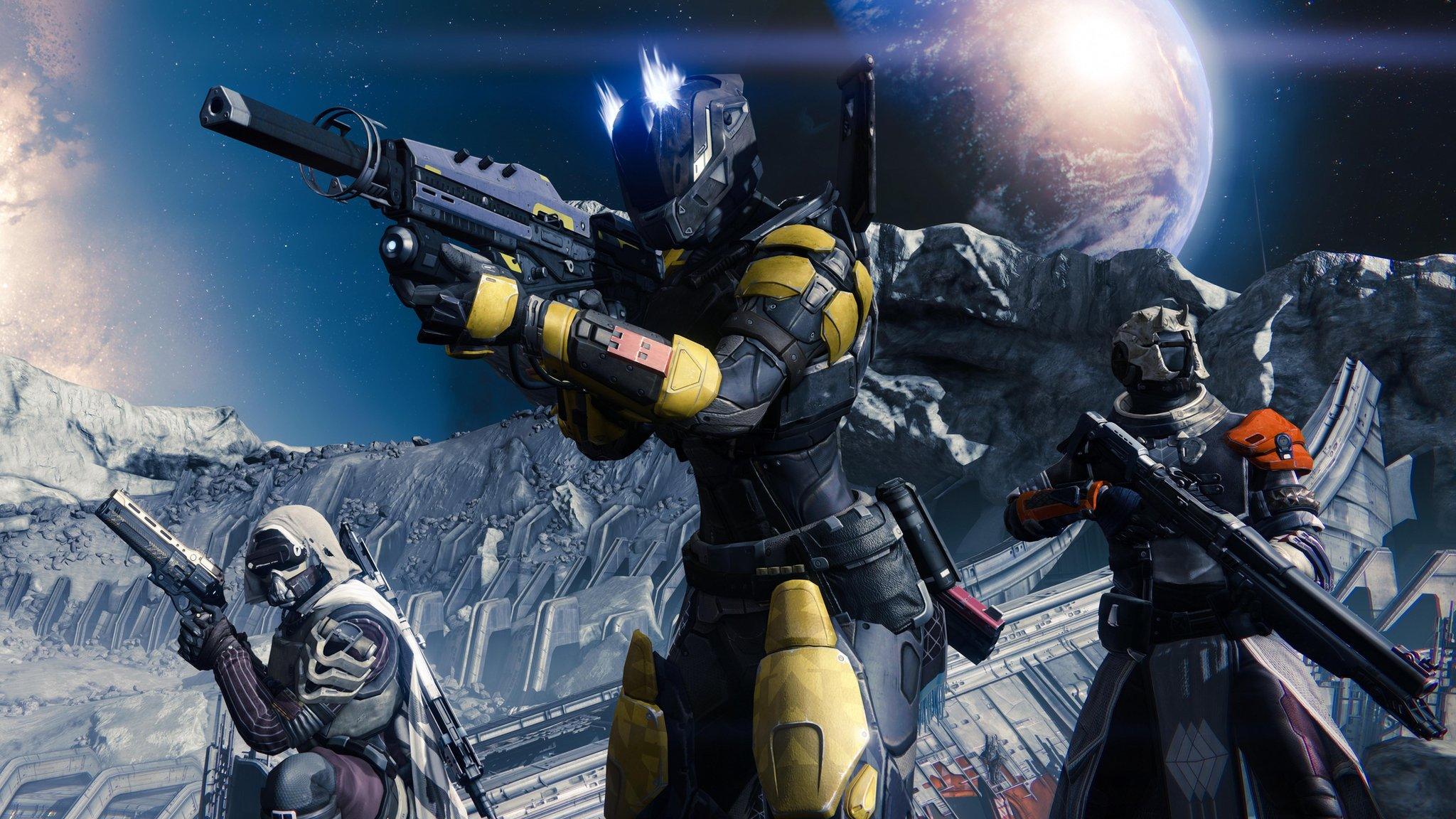
- Published11 June 2014
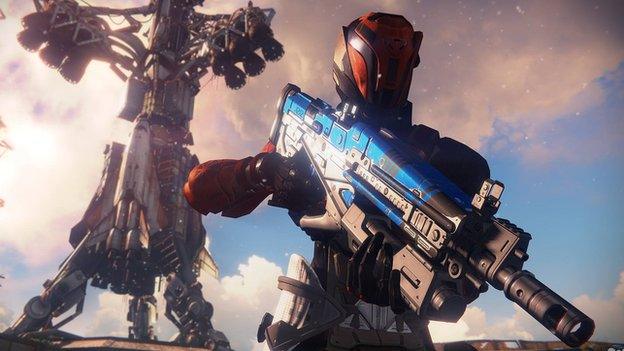
- Published28 November 2012
